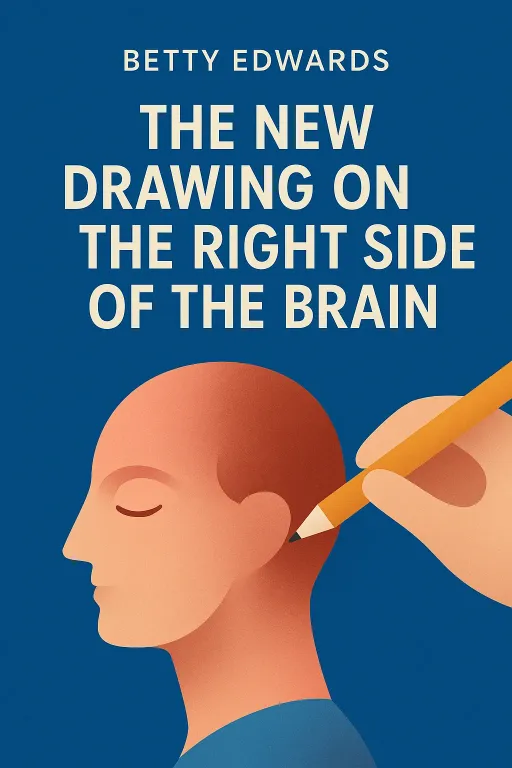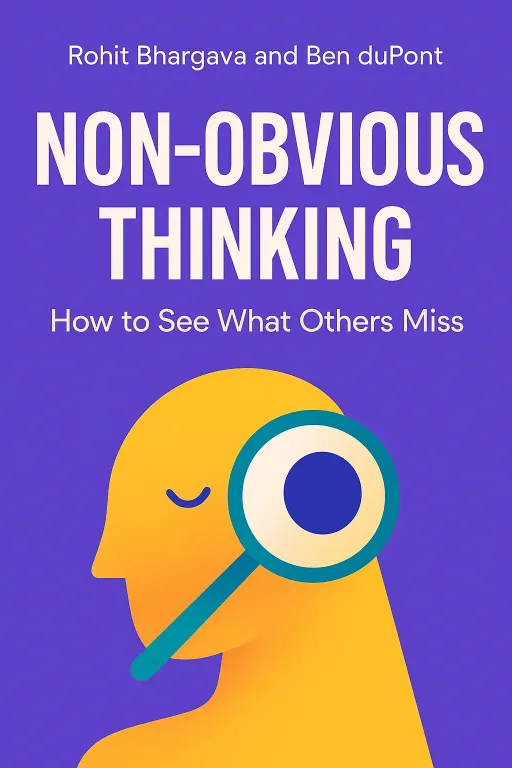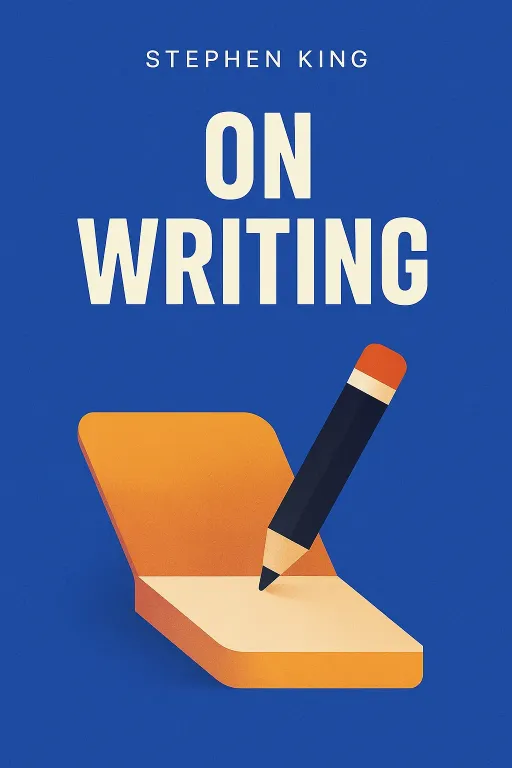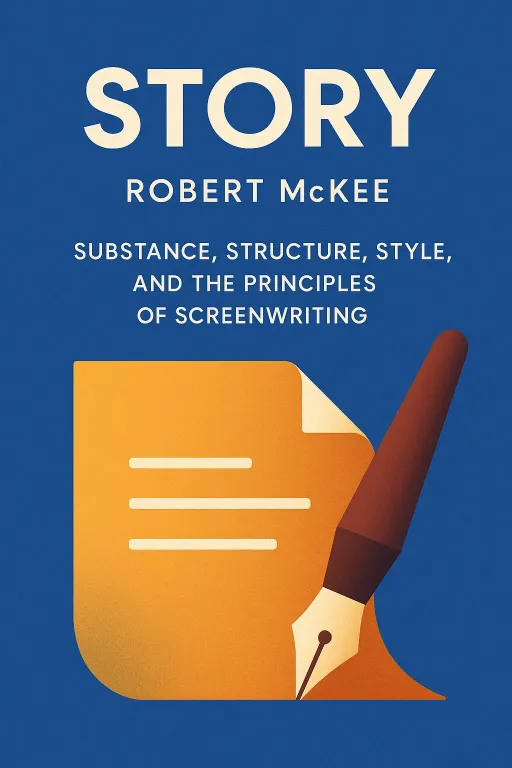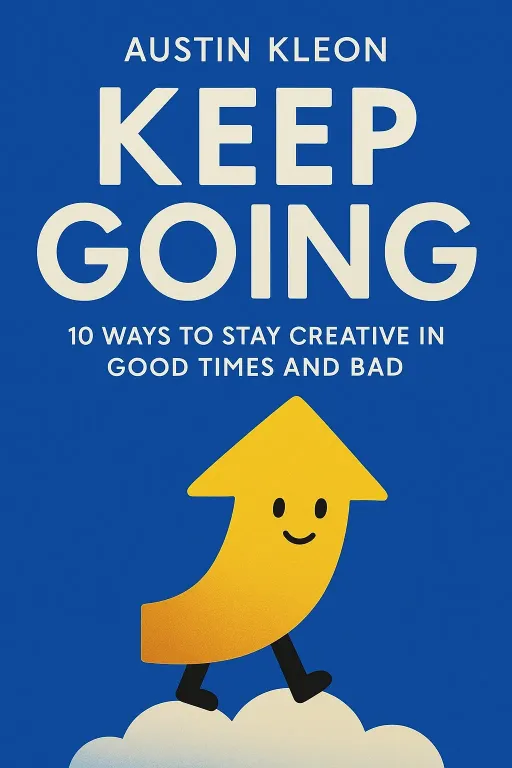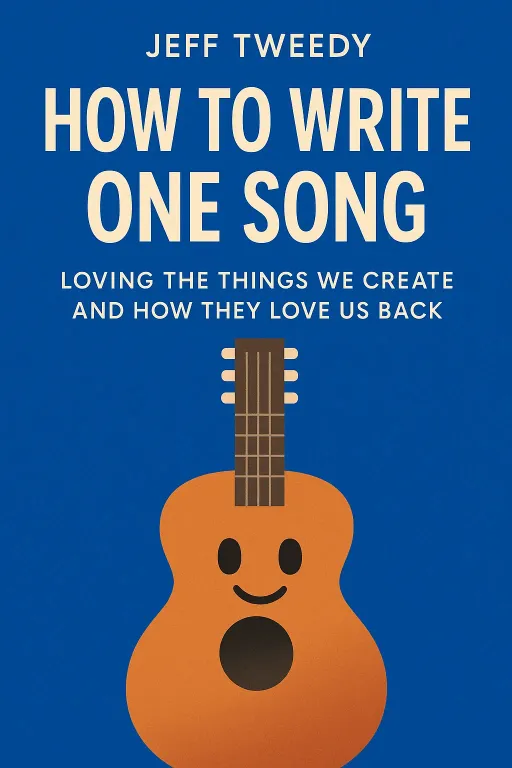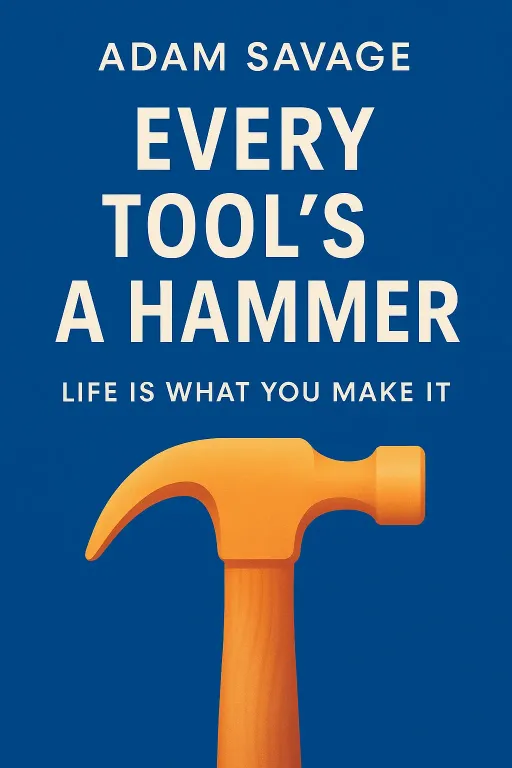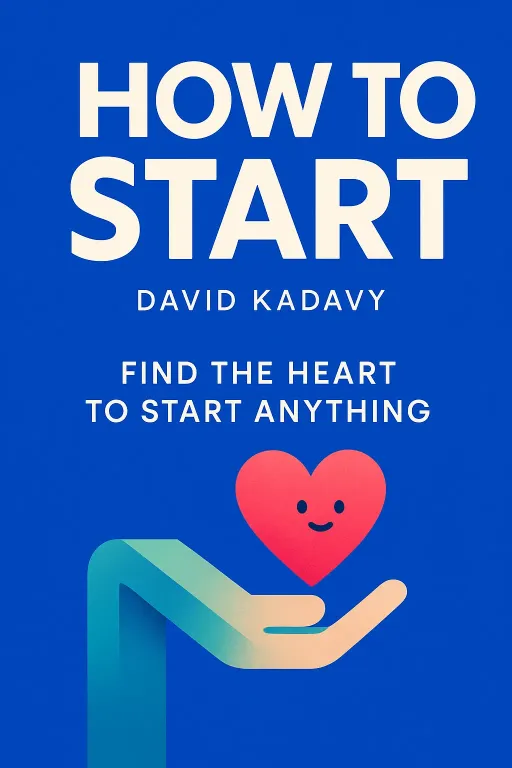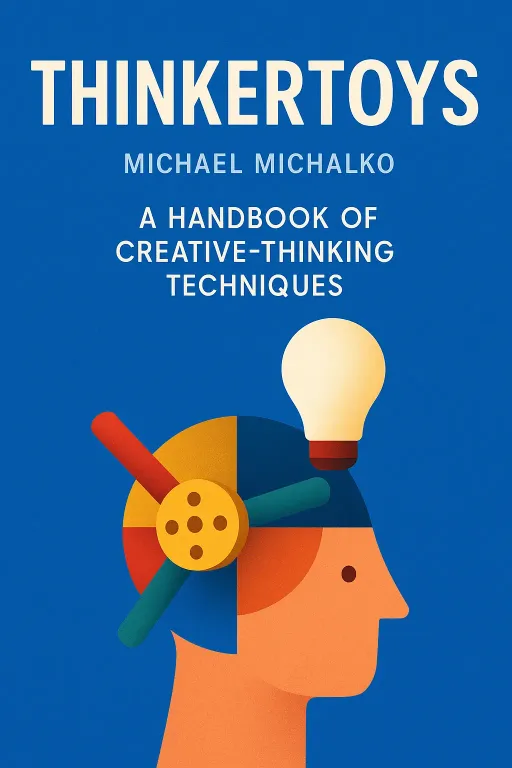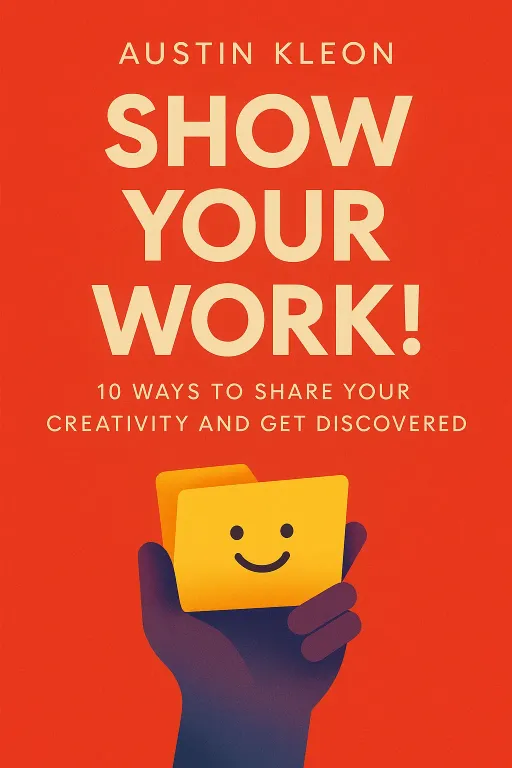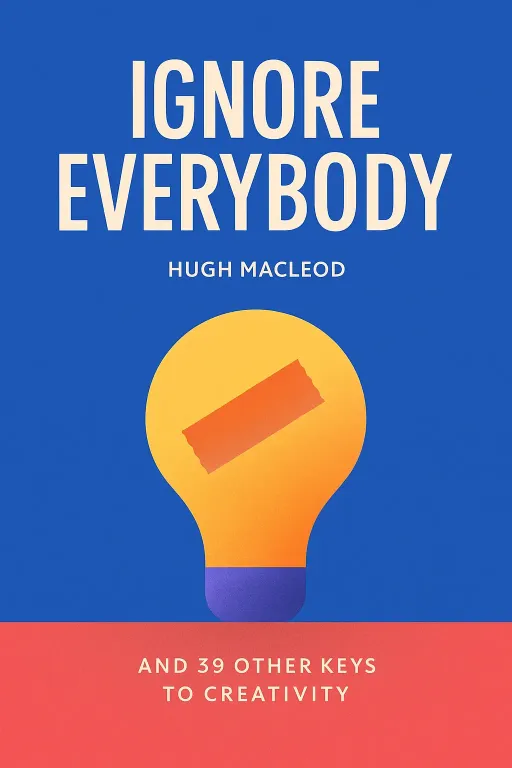
The Genius of Ignoring People
12 minAnd 39 Other Keys to Creativity
Golden Hook & Introduction
SECTION
Rachel: The worst advice you can get for your brilliant new idea might come from your closest friends. In fact, their approval could be a red flag. Justine: Whoa, that's a hot take. So I shouldn't run my next big plan by my best friend over coffee? I thought that was mandatory. Rachel: According to our book today, you might be better off keeping it to yourself. We're exploring why the path to true creativity often starts with learning to ignore almost everyone. Justine: I'm both offended and deeply intrigued. What book is handing out this kind of anti-social advice? Rachel: It's the core, provocative message from Hugh MacLeod's book, Ignore Everybody: And 39 Other Keys to Creativity. Justine: Hugh MacLeod, right. He's the guy who got famous drawing these sharp, witty cartoons on the back of business cards, isn't he? He kind of hacked his own creative career using the internet way before that was a common playbook. Rachel: Exactly. He was an ad copywriter in New York, feeling pretty stuck, and started blogging his cartoons on a site called Gapingvoid. It exploded. This book is basically the manifesto that came out of that entire journey. It's very highly-rated online, but it's also really polarizing. Some people find it to be a creative bible, others find it overly simplistic or cynical. Justine: Perfect. The controversial ones are always the most fun to unpack. So let's get into it. Why on earth should I ignore everybody?
The Glorious Loneliness of a Good Idea
SECTION
Rachel: Well, MacLeod's first and most famous key is "Ignore Everybody." And he doesn't just mean ignore the haters. He means ignore your friends, your family, your colleagues—pretty much anyone who isn't your target customer. Justine: Okay, but why? That sounds incredibly arrogant, and also just… lonely. What if they have good feedback? Rachel: His argument is that good ideas, truly original ones, are often met with resistance for a very specific reason. He has this fantastic quote: "GOOD IDEAS ALTER THE POWER BALANCE IN RELATIONSHIPS. THAT IS WHY GOOD IDEAS ARE ALWAYS INITIALLY RESISTED." Justine: Hold on, alter the power balance? What does that even mean? If I tell my friend I want to start a podcast, how does that shift our power dynamic? Rachel: Think about it. Your friends and family love you as you are. A new, ambitious idea signals that you might change. You might become more successful, or busier, or you might fail spectacularly. Either way, the comfortable dynamic you have is threatened. For business colleagues, a new idea might threaten their control, their budget, or their status. Their feedback is rarely about the idea itself; it's about how the idea impacts them. Justine: That is a deeply cynical, and probably very true, observation. It reframes "helpful advice" as a form of self-preservation on their part. Rachel: Precisely. MacLeod shares his own story about this. When he first came up with the "cartoon-on-back-of-bizcard" format, everyone told him it was a dead end. They said, "Why don't you do greeting cards? That's a real market. That's more digestible." They tried to steer him toward something familiar and safe. Justine: And if he'd listened, he'd probably be designing cheesy birthday cards instead of building a unique brand that led to this book. Rachel: Exactly. He says the only thing you can really trust in that early stage is a strong gut feeling. And that's the hard part. He writes, "YOU DON'T KNOW IF YOUR IDEA IS ANY GOOD the moment it's created. Neither does anyone else. The most you can hope for is a strong gut feeling that it is." Justine: But that sounds terrifying! How do you distinguish between a brilliant gut feeling and just pure delusion? We all know someone who was absolutely convinced their terrible idea was genius. Rachel: That's the tightrope walk of creativity. MacLeod addresses this with another key: "Good Ideas Have Lonely Childhoods." He argues that this initial period of doubt and isolation is the price you pay for originality. There's no way to avoid it. If everyone immediately loves your idea, it might be because it's not very new. Justine: So the loneliness is a feature, not a bug. It's a sign that you might be onto something that nobody else sees yet. Rachel: Yes. And this is different from being un-coachable. It's about protecting the idea in its infancy. Once it's stronger and more developed, you can start bringing in feedback. But in the beginning, it's fragile. It needs a quiet, protected space to grow, away from the chorus of opinions. Justine: I can see how that applies to more than just art. Starting a business, making a major life change… the initial phase is so vulnerable. Rachel: It really is. And the opposite is also true. He tells a story about visiting the offices of a famous humor magazine in London and the editor showed him a letter from a once-famous cartoonist who was now begging to be published. The editor just tossed it aside and said, "Another whiny letter... How not to get published." The desperation for approval is the ultimate repellent. The best way to get approval is not to need it. Justine: Wow. That's brutal. So you have to project this aura of self-sufficiency even when you're terrified inside. You have to be willing to be lonely with your idea. Rachel: That's the first battle. And once you've won that internal battle, you have to face the external one. Justine: Right. So you're alone with your fragile, brilliant idea. But you still have to pay rent. You still have to eat. This is where most creative dreams die, isn't it? The money problem.
The 'Sex & Cash' Theory: Your Day Job as a Creative Superpower
SECTION
Rachel: It is. And this is where MacLeod's advice gets even more counter-intuitive and, for many people, incredibly liberating. He has a chapter called "Keep Your Day Job," which introduces what he calls 'The Sex & Cash Theory.' Justine: I'm listening. 'Sex & Cash' sounds a lot more interesting than 'budgeting.' Rachel: It's a simple framework. He says every creative person has two kinds of jobs. The first is the 'Sex' job—this is the work you love, the passion project, the art you create that fulfills you. It’s the reason you feel alive. Justine: Okay, my podcast, my half-finished novel, my terrible watercolor paintings. Got it. That's the 'Sex'. Rachel: The second job is the 'Cash' job. This is the one that pays the bills. It might be boring, it might be corporate, but it keeps the lights on. And his radical idea is that you need both, and you should never confuse the two. Justine: So he's arguing against the "follow your passion and the money will follow" narrative? Rachel: He's demolishing it. He says the pressure to make your 'Sex' project pay the bills is the fastest way to kill it. The moment your art has to pay your mortgage, you start making compromises. You start thinking about the market, about what sells, about pleasing clients. You dilute the very thing that made it special. Justine: So my boring 9-to-5 isn't killing my dream, it's… funding it? It's the patron of my art? Rachel: It's your creative superpower! It's the protective shield that gives your 'Sex' project the freedom to be weird, to be niche, to be unprofitable, to be itself. He uses the example of a photographer who shoots for low-paying hipster magazines to build his creative portfolio—that's 'Sex'. Then he leverages that cool portfolio to get high-paying commercial gigs shooting retail catalogs—that's 'Cash'. Justine: That makes so much sense. It takes all the pressure off. You don't have to monetize your joy immediately. You can let it develop organically while the 'Cash' job handles the financial reality. Rachel: And this was his own life. He worked in advertising for over a decade. That was his 'Cash' job. The cartoons on business cards were his 'Sex' project. He did them for years with no commercial intention. Because he had a day job, he didn't need the cartoons to make money, which allowed them to be as strange and authentic as he wanted. And ironically, that authenticity is what eventually made them commercially successful. Justine: This connects back to another key, doesn't it? The one about "Selling Out Is Harder Than It Looks." Rachel: It does. He tells a great story from when he was a young copywriter. He put together a portfolio for job interviews, but he intentionally 'toned it down' to appeal to what he thought conservative clients wanted. A creative director looked at it and was completely unimpressed. He told him, "Show me the toned-up version first. You can tone it down later if the client comes after you with a red-hot poker. But start with your real voice." Justine: In other words, you can't sell out if nobody has bought into your authentic self first. You have to have something pure to dilute in the first place. Rachel: Exactly. The day job, the 'Cash' part of the equation, allows you to keep that 'toned-up' version of your creative self alive and well, without the pressure of immediate financial return. It protects your sovereignty. Justine: I love that term, 'creative sovereignty.' It’s not just about making art; it's about having ownership over your own creative soul. Rachel: And that's why he also has a key called "Remain Frugal." He says the less money you need to live on, the more freedom you have. He learned that the hard way after landing a high-paying job in New York, spending it all, and then nearly becoming homeless during a recession. Financial discipline isn't about being cheap; it's about buying your freedom. Justine: So the less you need, the less power the 'Cash' job has over you, and the more energy you can devote to the 'Sex' project. It's all interconnected.
Synthesis & Takeaways
SECTION
Rachel: It really is. When you put the two core ideas together, a clear strategy emerges. Justine: Let me see if I can piece it together. First, you have to build an internal fortress around your idea. You embrace the loneliness, you ignore the naysayers, and you trust your gut. You become the sole guardian of this fragile, new thing. Rachel: That's the 'Ignore Everybody' part. The internal battle. Justine: Then, you build an external fortress to protect it from the harsh realities of the world. That fortress is your day job, your 'Cash' gig. It acts as a financial moat, giving your creative idea the time and space it needs to grow without the pressure of having to make money right away. Rachel: The 'Sex & Cash' theory. The external strategy. Justine: So it's a two-front war for creative survival. You're defending your idea from internal doubt and external market pressures simultaneously. The freedom isn't in quitting your job; the freedom is in the structure you build that allows your creativity to thrive safely within it. Rachel: That's a perfect summary. It's not about a dramatic leap of faith. It's about building a sustainable system for a creative life. MacLeod's final key in the book, Key #40, condenses everything down to its simplest form. Justine: What does it say? Rachel: It's wonderfully straightforward. He says, "Work hard. Keep at it. Live simply and quietly. Remain humble. Stay positive. Create your own luck. Be nice. Be polite." Justine: After all the provocative advice, it comes down to these simple, timeless truths. It’s not rocket science, as he says. It’s just… hard work and a good attitude. Rachel: And the courage to protect what's yours. So, for everyone listening, maybe the question this week isn't 'How can I get more approval for my idea?' but 'How can I better protect it?' Justine: I love that. What's the one thing you're working on—a project, a business idea, a personal goal—that you need to shield from the crowd for a little while longer? Maybe this is the week to stop asking for opinions and just, as MacLeod would say, put the hours in. We’d love to hear about your own 'Sex & Cash' balancing acts. Come find us on our socials and share your story. Rachel: It’s a journey we’re all on. Justine: This is Aibrary, signing off.
